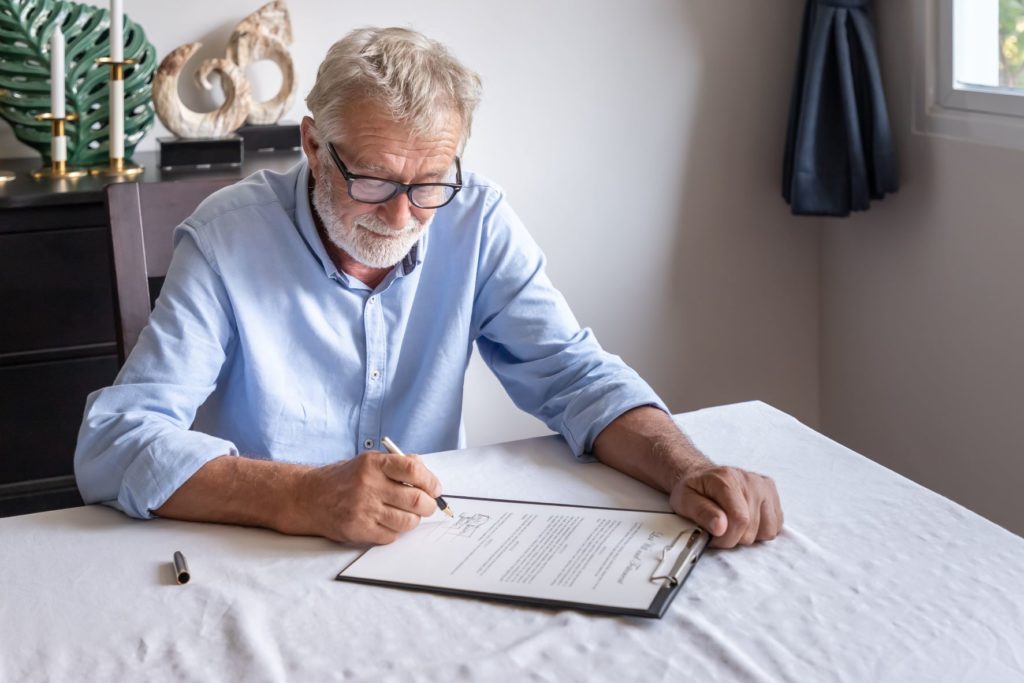Probate
You might have heard someone use the term “tied up in probate” when talking about the legal system without ever getting a clear answer on how probate actually works.
If you have questions about the ins-and-outs of probate, our attorneys are here to help. Read on to learn more.
What Is Probate?
When someone dies and leaves behind a will, courts use the probate process to prove whether the will is valid. The word probate comes from the Latin term for “to prove the will.” The goal here is to ensure that the deceased person’s assets are handed down according to their wishes and that person’s will is a legally viable document.


Is Probate Always Necessary?
If someone dies with no probate assets, then probate may not be necessary. Probate assets are usually those that are in the decedent’s – the deceased person – name alone.
If the decedent owned only a joint bank account, or a life insurance policy with designated beneficiaries, these are considered non-probate assets and do not have to go through probate.
All residents of Pennsylvania go through the same process when they die without a will: the state determines who gets their property.
In most cases, assets will go to the person’s spouse or children. But when you create a will, you can specifically state who you want to receive your assets after death.
What Happens If I Become the Administrator of Someone Else’s Estate?
If you have been appointed executor or administrator of an estate, you will need to:
- Inform institutions such as banks, creditors and Social Security that the person has died.
- Create a bank account to pay bills and collect incoming funds
- Make an inventory of the decedent’s assets
- Maintain their property before selling it
- Pay taxes and debts
- Distribute assets to beneficiaries

How Long Does Probate Take?
The length of the probate process depends on the complexity of the estate and whether the decedent performed proper estate planning before they died. In Pennsylvania, the probate process can often take more than a year.
How Can an Estate Attorney Help Me with This Process?
By law, you do not need an attorney to help you through the probate/administration process, although it can go a lot smoother if you work with an attorney.
If you are dealing with a loved one’s will or have questions about how to navigate the world of probate and estate administration, our attorneys are here to help.
We have spent years helping our clients navigate the world of estate planning, probate and estate administration. Contact us to learn how we can assist in this often difficult process.
What to Do If Someone Dies Without a Will in Pennsylvania?
If you are wondering what to do when someone dies in Pennsylvania, or what to do when a parent dies in Pennsylvania, you are not alone. Most people have not dealt with the probate process in the past and have questions about all the steps that need to be taken. Those questions are even more urgent when a person dies without leaving a will. Who determines who gets their property? How do you deal with this situation if you have been appointed as the administrator of such an estate? Speaking to an elder law attorney, can help you get answers to these questions and more.
All Pennsylvania residents go through the same process when they die without a will: the state determines who gets their property. In most cases, assets will go to the person’s spouse or children. But when you create a will, you can specifically state who you want to receive your assets from after death. If you have specific wishes about who will get your property after you pass away, it is important to speak with an estate administration lawyer as soon as possible.
We have combined decades of experience advising our clients about probate and other elder law matters. If you need an estate administration lawyer, we can put that experience to work for you. If you have been named as the administrator of an estate, our advice will be invaluable to you, whether or not the decedent left behind a will.
Planning for probate is also an important consideration to make during estate planning. Our attorneys can help draw up a last will and testament, as well as other documents that will make probate much simpler for loved ones. In addition to our work related to probate, we also advise clients on a range of other elder law matters. From general estate planning and living wills to trusts, Medicaid asset protection, and powers of attorney, our team can give you the best advice about any elder law planning topic.